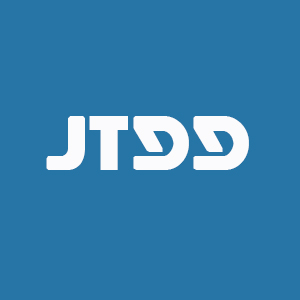REFERENCES
2. Hildebrand MS, Dahl HH, Damiano JA, Smith RJ, Scheffer IE, et al. Recent advances in the molecular genetics of epilepsy. J Med Genet 2013;50:271-9.
3. Cornet M, Cilio MR. Genetics of neonatal-onset epilepsies. Neonatal Neurology. Elsevier; 2019. pp. 415-33.
4. Glass HC, Shellhaas RA, Wusthoff CJ, Chang T, Abend NS, et al; Neonatal Seizure Registry Study Group. Contemporary profile of seizures in neonates: a prospective cohort study. J Pediatr 2016;174:98-103.e1.
5. Symonds JD, Zuberi SM, Stewart K, McLellan A, O’Regan M, et al. Incidence and phenotypes of childhood-onset genetic epilepsies: a prospective population-based national cohort. Brain 2019;142:2303-18.
6. Miceli F, Soldovieri MV, Joshi N, Weckhuysen S, Cooper E, et al. KCNQ2-Related disorders. In: Adam MP, Ardinger HH, Pagon RA, Wallace SE, Bean LJH, editors. GeneReviews® [Internet]. Seattle (WA): University of Washington, Seattle; .
7. Millichap JJ, Park KL, Tsuchida T, Ben-Zeev B, Carmant L, et al. KCNQ2 encephalopathy: features, mutational hot spots, and ezogabine treatment of 11 patients. Neurol Genet 2016;2:e96.
8. Striano P, Minassian BA. From genetic testing to precision medicine in epilepsy. Neurotherapeutics 2020;17:609-15.
9. Kuersten M, Tacke M, Gerstl L, Hoelz H, Stülpnagel CV, et al. Antiepileptic therapy approaches in KCNQ2 related epilepsy: a systematic review. Eur J Med Genet 2020;63:103628.
10. Biervert C, Schroeder BC, Kubisch C, Berkovic SF, Propping P, et al. A potassium channel mutation in neonatal human epilepsy. Science 1998;279:403-6.
11. Orhan G, Bock M, Schepers D, Ilina EI, Reichel SN, et al. Dominant-negative effects of KCNQ2 mutations are associated with epileptic encephalopathy. Ann Neurol 2014;75:382-94.
12. Goto A, Ishii A, Shibata M, Ihara Y, Cooper EC, et al. Characteristics of KCNQ2 variants causing either benign neonatal epilepsy or developmental and epileptic encephalopathy. Epilepsia 2019;60:1870-80.
13. Cornet MC, Sands TT, Cilio MR. Neonatal epilepsies: clinical management. Semin Fetal Neonatal Med 2018;23:204-12.
14. Vilan A, Mendes Ribeiro J, Striano P, Weckhuysen S, Weeke LC, et al. A distinctive ictal amplitude-integrated electroencephalography pattern in newborns with neonatal epilepsy associated with KCNQ2 mutations. Neonatology 2017;112:387-93.
15. Scala M, Bianchi A, Bisulli F, Coppola A, Elia M, et al. Advances in genetic testing and optimization of clinical management in children and adults with epilepsy. Expert Rev Neurother 2020;20:251-69.
16. Dilena R, De Liso P, Di Capua M, Consonni D, Capovilla G, et al. Influence of etiology on treatment choices for neonatal seizures: a survey among pediatric neurologists. Brain Dev 2019;41:595-9.
17. Numis AL, Angriman M, Sullivan JE, Lewis AJ, Striano P, et al. KCNQ2 encephalopathy: delineation of the electroclinical phenotype and treatment response. Neurology 2014;82:368-70.
18. Scheffer IE, Berkovic S, Capovilla G, Connolly MB, French J, et al. ILAE classification of the epilepsies: position paper of the ILAE commission for classification and terminology. Epilepsia 2017;58:512-21.
19. Schubert-Bast S, Hofstetter P, Fischer D, Schloesser R, Ramantani G, et al. Sodium channel blockers in KCNQ2-encephalopathy: Lacosamide as a new treatment option. Seizure 2017;51:171-3.
20. Reif PS, Tsai MH, Helbig I, Rosenow F, Klein KM. Precision medicine in genetic epilepsies: break of dawn? Expert Rev Neurother 2017;17:381-92.







